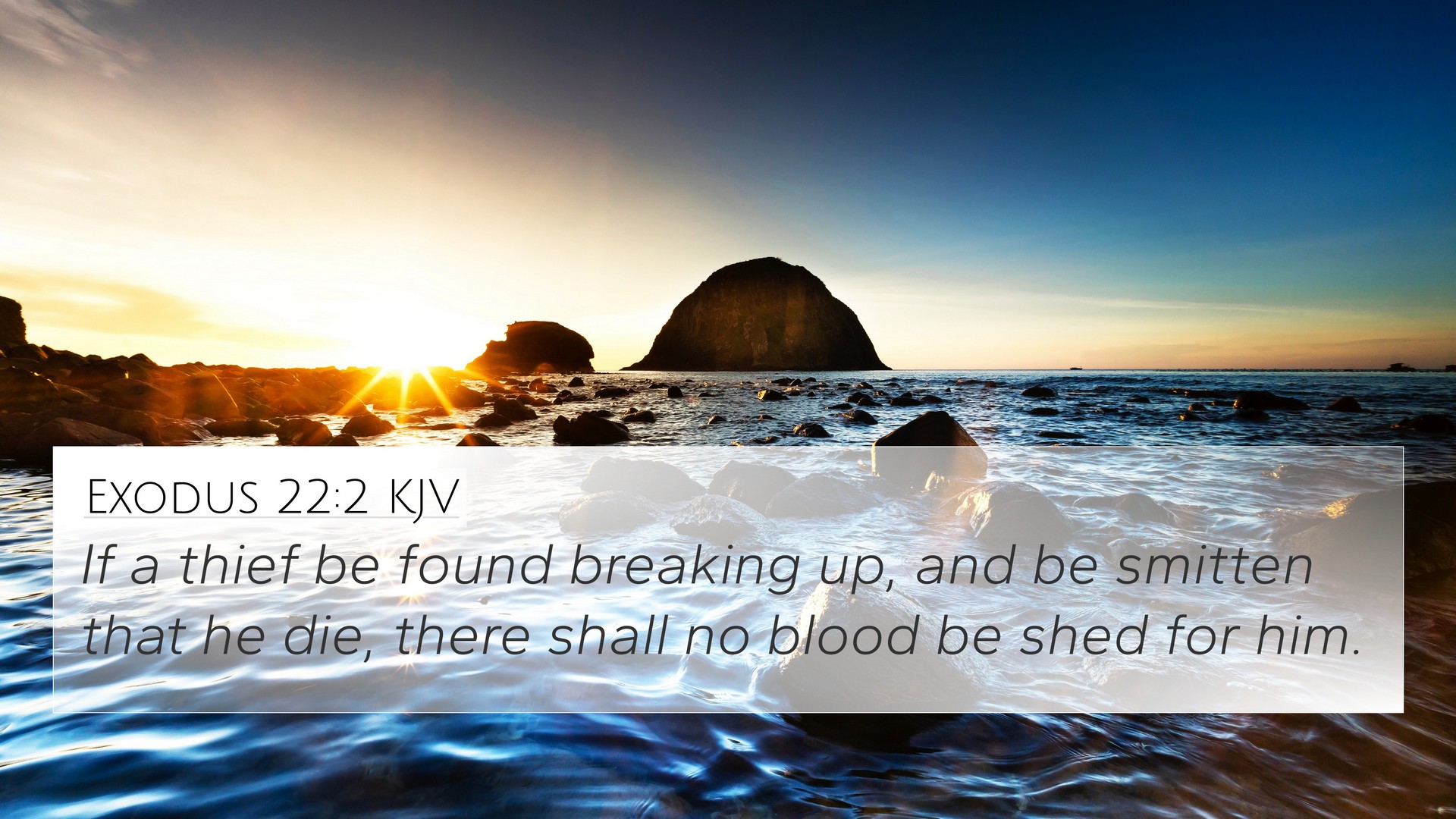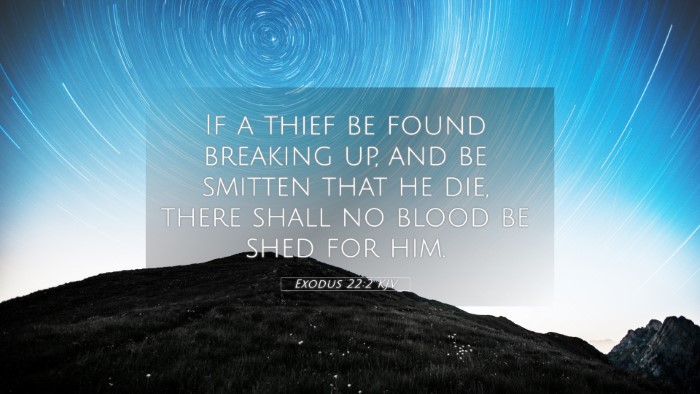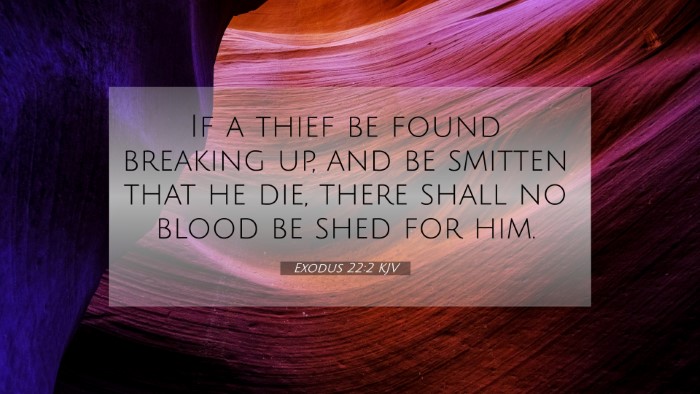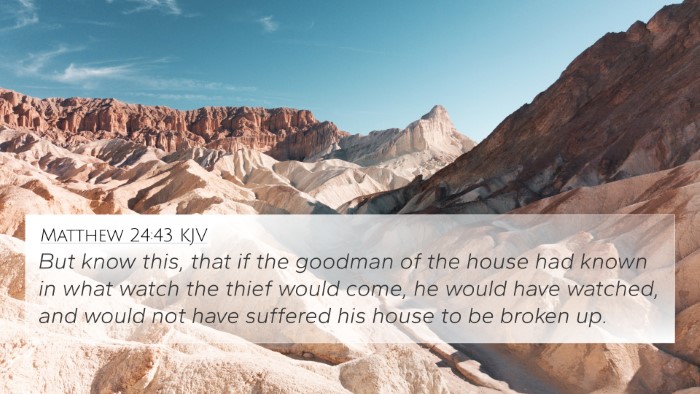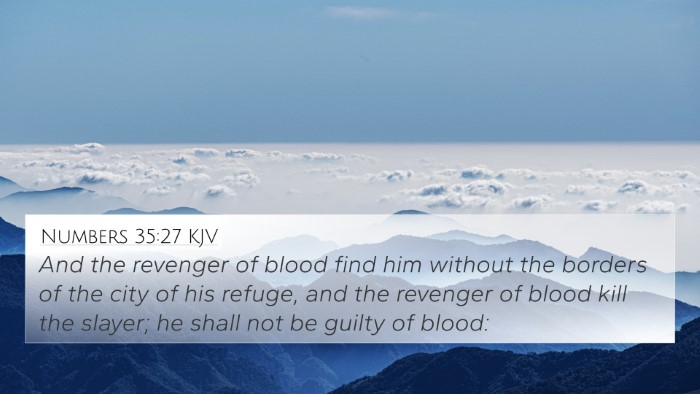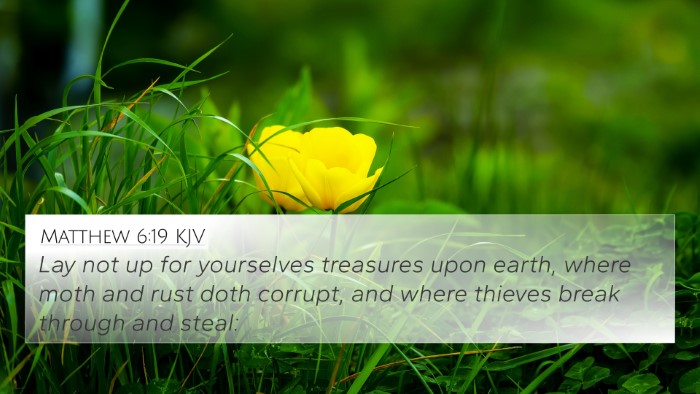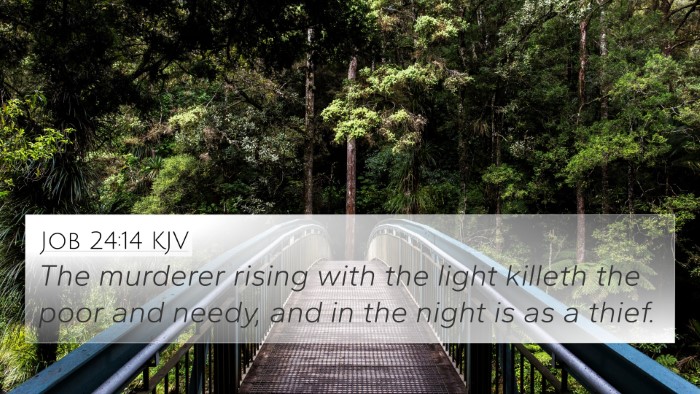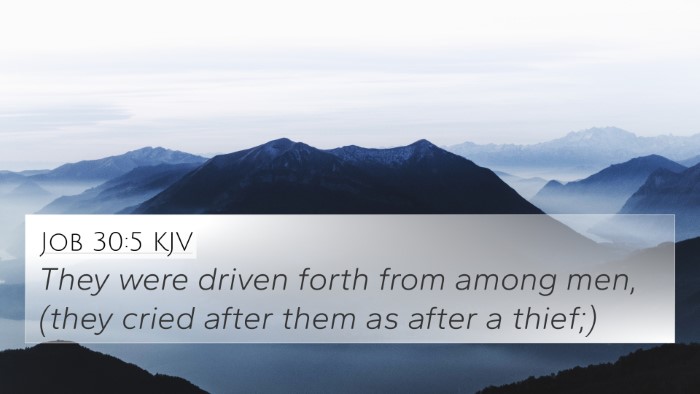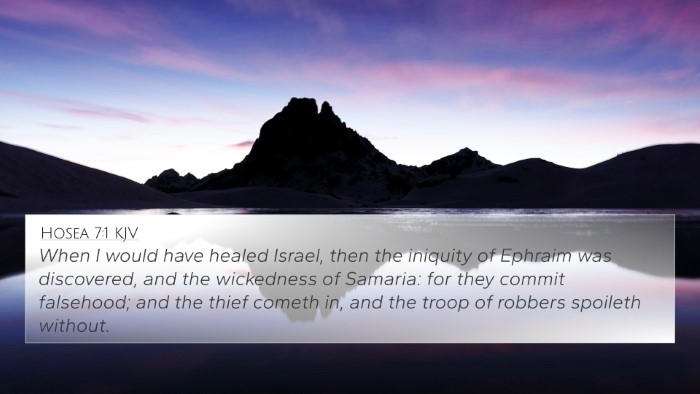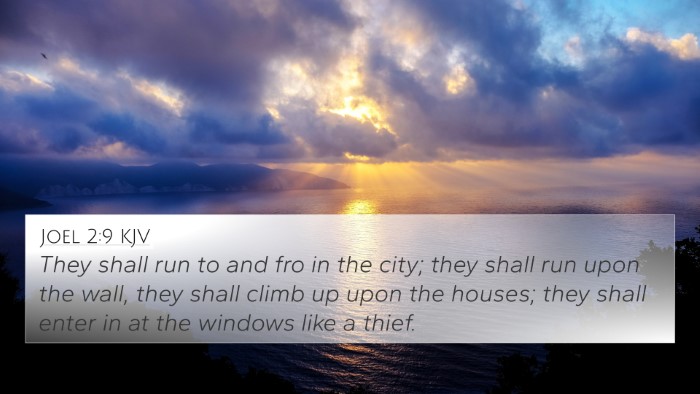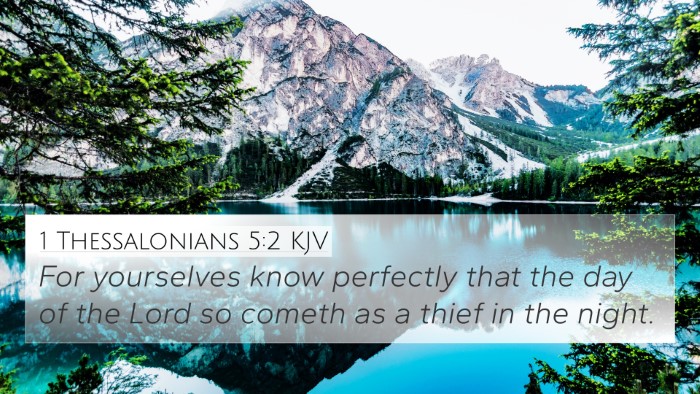Understanding Exodus 22:2
Exodus 22:2 (KJV): "If a thief be found breaking up, and be smitten that he die, there shall no blood be shed for him." This verse addresses the rules regarding property rights and self-defense in the context of theft.
Summary and Insights
This verse serves as a significant exploration of justice, self-defense, and property rights within the law given to Israel. The context underlines the gravity of theft and society's rightful response. Here’s a breakdown of interpretations based on public domain commentaries:
-
Matthew Henry’s Commentary:
- This commentary elaborates on the understanding that property rights are sacred and should be defended, emphasizing that the law provides protection for individuals who act in self-defense when their property is invaded.
- Henry portrays the thief’s danger not only to the possessions of the rightful owner but to the owner himself, indicating the potential violence that theft can incite.
- Furthermore, he notes that if the thief dies while attempting to commit a crime, the owner should not be punished for protecting himself, reflecting divine justice.
-
Albert Barnes’ Notes:
- Barnes interprets this verse as a regulation aimed at determent, reflecting the serious consequences of theft and the societal need to maintain order.
- He highlights the moral responsibility that both the thief and property owner carry, promoting a view of justice that balances the right to protect oneself against the transgression of another.
- Moreover, he points out that this law serves to instill a fear of retribution for unlawful behavior, aiming to prevent crime effectively.
-
Adam Clarke’s Commentary:
- Clarke discusses the situational context of the verse, stressing that it addresses a rare but significant scenario of nighttime burglary. He notes the lack of justifiable intent on part of the burglar that prevents his expected protection under the law.
- He suggests that should the thief die in the act due to defense actions, the owner of the property would not face liability, reflecting a strict implementation of justice.
- Clarke emphasizes that this law fits within the broader principles of justice and community safety outlined throughout the scriptures.
Cross-References and Thematic Connections
To gain a deeper understanding of Exodus 22:2, it's essential to explore connections to various other Bible verses that discuss themes of theft, justice, and self-defense:
- Exodus 21:18-19: This passage discusses laws regarding personal injuries, elaborating the principle of justice in the context of disputes amongst individuals.
- Deuteronomy 19:11-13: Here, the principle of avenging and defending oneself is addressed, aligning with the notion that taking another's life must be carefully examined under the law.
- 1 Peter 2:14: This verse mentions rulers as God's ministers to punish evildoers, relating to how society must respond to crime.
- Romans 13:4: It states that governing authorities bear the sword to execute wrath on those who do evil, reinforcing the protective aspects of laws against wrongful acts.
- Matthew 5:38-39: In this passage, Jesus discusses turning the other cheek, presenting an important contrast regarding self-defense and the Christian response to wrongdoing.
- Luke 22:36: Jesus’ directive to buy a sword highlights the necessity of self-protection when required, resonating with the sentiments expressed in Exodus 22:2.
- Proverbs 6:30-31: It reflects on the consequences of theft and suggests the thief is still held responsible for their actions, emphasizing justice.
- Galatians 6:7: It states "Whatsoever a man sows, that shall he also reap," particularly related to the idea of consequences stemming from one’s actions, including theft.
- John 10:10: Jesus speaks of the thief who comes to steal, kill, and destroy, which serves as an overarching theme in understanding the moral implications of theft.
- Revelation 21:8: This verse talks about the fate of the unrepentant, including thieves, presenting a finality of justice and consequences in the eyes of divine law.
These cross-references offer a myriad of perspectives on related themes and build a comprehensive framework for understanding not only Exodus 22:2 but also the broader biblical narrative on justice and morality.
Conclusion
In summary, Exodus 22:2 provides profound insights into the nature of property laws, self-defense, and the dynamics of justice within society. Through careful study and cross-referencing with other biblical texts, believers can cultivate a deeper understanding of the implications and applications of such laws in their lives.
